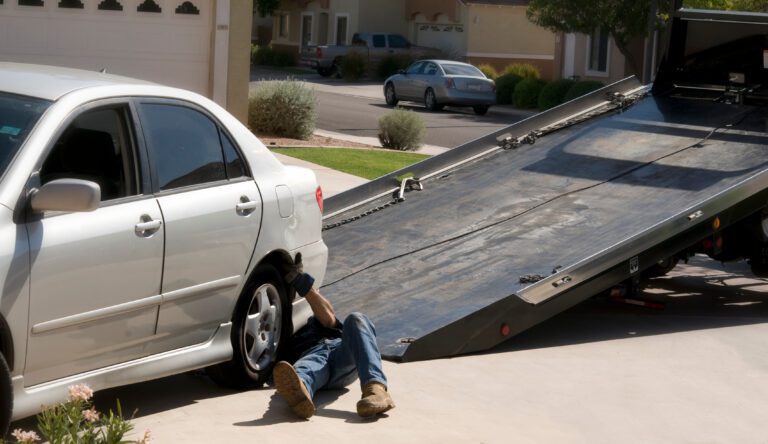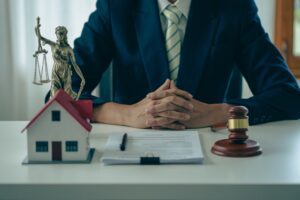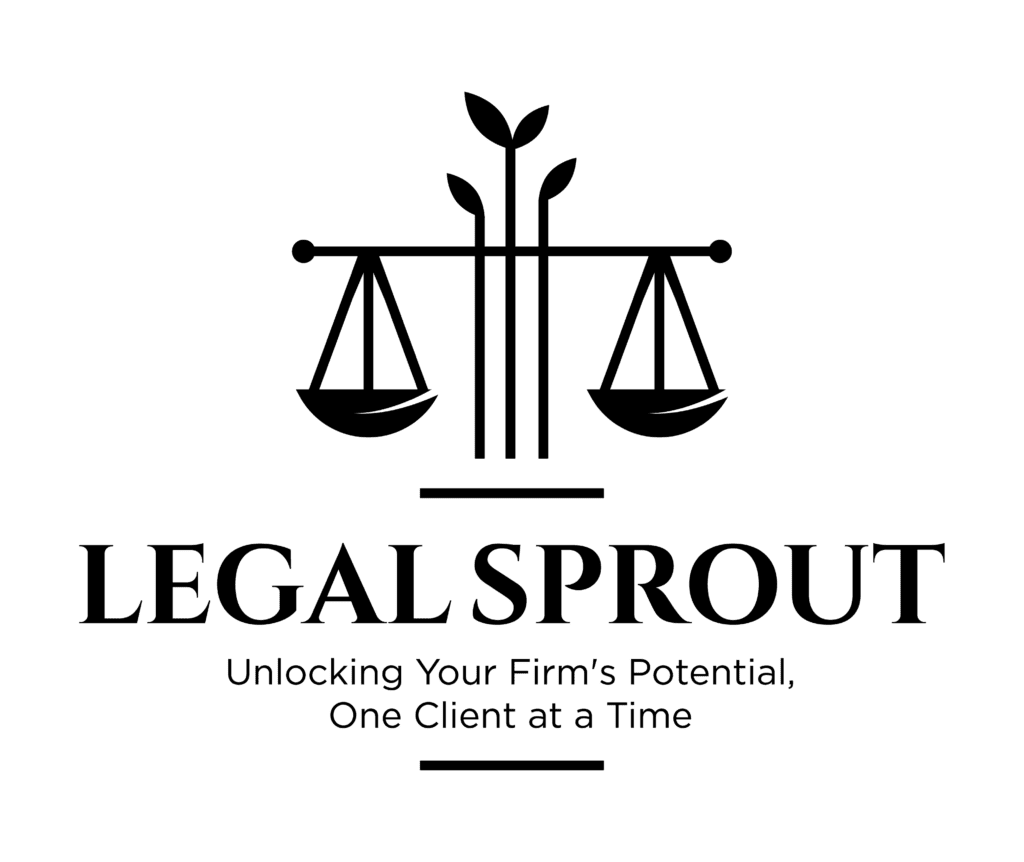In 2024, many residents in Eastern North Carolina, including New Bern, Wilmington, and surrounding areas, are facing vehicle repossession as economic pressures continue to mount. If your car has been repossessed—or you’re worried it might be—it’s essential to understand your rights and the steps you can take. This guide offers practical steps and legal insights to help you recover your vehicle and regain control of your financial situation.
Immediate Steps to Take After Your Car is Repossessed
1. Contact Your Creditor
Your first move should be to call your lender immediately. This conversation will help you understand:
- How much you owe (including any fees for towing and storage)
- What options are available for reclaiming your vehicle
- The auction schedule if the car hasn’t been sold yet
Acting quickly is crucial. In many cases, if your car is sold at auction, it becomes much harder—if not impossible—to get it back.
2. Review Your Loan Agreement
Pull out your loan paperwork and review the terms related to repossession and redemption. Knowing these details will help you understand your options and what you are legally entitled to do.
- Look for clauses about reinstating the loan or redemption.
- Check for any notices you should have received regarding the repossession.
Negotiating with Your Creditor
Explore Repayment Options
You may be able to negotiate with your lender to recover your vehicle. This could include:
- Reinstating the loan by paying what you owe, including late fees, to bring your account current.
- Restructuring the loan to make payments more manageable in the future.
Example: If you’re facing temporary financial difficulties, such as a job loss, lenders may offer payment deferrals or loan modifications to help you keep your car.
Understanding Redemption Rights in North Carolina
Redemption Process
In North Carolina, you have the right to redeem your repossessed vehicle by paying off the entire loan balance, along with any fees. This process is time-sensitive, meaning you need to act before the vehicle is sold at auction.
- Example: If you owe $12,000 on your loan, plus $500 in fees, you must pay the full amount to redeem your vehicle.
- The lender is required by law to notify you of your right to redeem the vehicle, giving you an opportunity to reclaim it.
Legal Avenues for Recovery
Consider Bankruptcy
If repayment or redemption isn’t an option, bankruptcy may be a way to stop the repossession process and gain some breathing room.
- Chapter 7 bankruptcy can temporarily halt repossession, giving you time to figure out a repayment strategy.
- Chapter 13 bankruptcy allows you to reorganize your debt, catch up on missed payments, and keep your vehicle.
Bankruptcy can feel like a daunting option, but it may offer a solution if you’re in a tough financial spot. Our attorneys in New Bern and Wilmington can help you explore whether this option fits your needs.
Common Misconceptions About Repossession
“If my car is repossessed, it’s gone for good.”
- Reality: In many cases, you still have a chance to reclaim your vehicle through redemption or negotiation—provided you act quickly.
“I don’t have any rights after repossession.”
- Reality: North Carolina law ensures that lenders must notify you after repossession and give you the opportunity to get your car back before it’s sold. If the repossession was handled improperly, you may have legal grounds to challenge the lender’s actions.
Impact on Your Credit and How to Rebuild
Effect on Your Credit Score
A repossession can remain on your credit report for up to seven years, which may make future loans more difficult to obtain. However, you can still take steps to improve your financial situation.
Rebuilding Your Credit
Here are some tips to rebuild your credit after repossession:
- Pay remaining debts on time to establish a positive payment history.
- Use secured credit cards to slowly rebuild your credit score.
- Check your credit report regularly for errors, and dispute any inaccuracies.
It will take time to recover, but each small step forward makes a difference.
How a Lawyer Can Help You When Facing Repossession
A lawyer experienced in bankruptcy and repossession law can do more than just explain your options. They can offer concrete legal strategies to help you manage your situation, regain control of your vehicle, and address other financial challenges. Here’s how legal support can make a difference:
- Negotiate with Your Lender: Attorneys can often negotiate loan reinstatements or new payment arrangements on your behalf, even after a repossession. With legal help, lenders are more likely to agree to a solution that allows you to keep or recover your vehicle.
- Challenge Improper Repossession: If your lender didn’t follow the rules—like entering your property illegally or failing to notify you—you may be able to challenge the repossession in court. A lawyer can investigate the details and take legal action if your rights were violated.
- Explore Bankruptcy Options: Bankruptcy can be a lifeline when other options have been exhausted. It can stop repossession and give you time to reorganize your debt or eliminate certain obligations altogether. Below, we’ll explain how bankruptcy could allow you to recover or keep your vehicle.
- Address Deficiency Balances: If your vehicle has already been sold at auction and the sale didn’t cover the full loan amount, you could be stuck with a deficiency balance. An attorney can help negotiate that balance down—or, in some cases, eliminate it entirely through bankruptcy.
How Bankruptcy Can Save Your Car and Offer Relief
If repossession feels unavoidable or has already occurred, bankruptcy may offer solutions that other strategies can’t provide. Here’s how different types of bankruptcy work when you’re dealing with vehicle repossession.
Chapter 7 Bankruptcy: Temporary Relief and Fresh Start
In Chapter 7 bankruptcy, many of your debts can be discharged, giving you a fresh financial start. When you file for Chapter 7, the court issues an automatic stay that immediately stops most collection efforts, including repossession.
- If Your Car Hasn’t Been Repossessed Yet:
Filing for Chapter 7 can temporarily halt the repossession process, giving you time to work out a solution with your lender. If you can catch up on payments quickly, the lender may agree to let you keep the vehicle. - If Your Car Has Already Been Repossessed:
While Chapter 7 alone might not allow you to recover a repossessed vehicle if it has already been sold, it can help eliminate any deficiency balance left over after the auction. This can save you from having to repay thousands of dollars.
Chapter 13 Bankruptcy: Reorganize Your Debt and Keep Your Car
For many people, Chapter 13 bankruptcy offers the best solution to keep a vehicle after missed payments. Unlike Chapter 7, Chapter 13 allows you to reorganize your debt into a repayment plan over three to five years. The automatic stay from filing Chapter 13 can stop repossession or even help you recover a vehicle if it has already been repossessed but hasn’t yet been sold.
- If Your Car Hasn’t Been Repossessed Yet:
Filing for Chapter 13 will halt the repossession process and allow you to catch up on missed payments through your repayment plan. You’ll be able to spread the overdue amount across your entire payment period, making it easier to afford.
Example: If you’re $2,000 behind on payments, instead of paying that amount all at once, Chapter 13 lets you spread the $2,000 across your repayment plan—often with reduced monthly payments. - If Your Car Has Already Been Repossessed:
If your vehicle hasn’t been sold at auction yet, Chapter 13 may allow you to get it back by catching up on payments through your plan. Even if the lender has incurred fees, those costs can often be included in your repayment schedule.
How Bankruptcy Affects Your Credit and Recovery Plan
Filing for bankruptcy will impact your credit, but the effect is often less damaging than a repossession or unpaid deficiency balance. Over time, with responsible financial behavior, you can rebuild your credit. Many people find that their credit scores improve within a year or two after filing, especially if they stay current on any remaining payments.
Contact Us for a Free Consultation
If you’re dealing with repossession, don’t wait—reach out to our offices in New Bern or Wilmington today for a FREE consultation. We’ll help you understand your options and work towards the best possible outcome. Whether you’re in Craven County, New Hanover County, or nearby areas, we’re here to support you every step of the way.
Informational Purpose Only: This blog is intended for informational purposes and does not constitute legal advice.
No Attorney-Client Relationship: Reading this blog does not create an attorney-client relationship.





